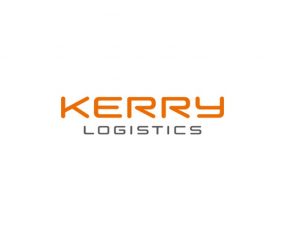
2018 was a year to remember for Hong Kong-based Kerry Logistics Network, with all its main financial metrics showing the 3PL is growing while paying attention to a balanced capital structure.
If anything, the fly in the ointment was represented by falling operating margins, with EBIT margin down to 9.2% from 10% one year earlier.
Group revenues rose 24.1% to HK$38.1bn ($4.9bn), with gross profit up 13.7% – while gross profit margin fell 110 basis points – and EBIT surged 13.9% to almost HK$3.5bn. Given its depreciation and amortisation schedule, it generated EBITDA of about HK$4.3bn, which implies a manageable trailing net leverage, as gauged by net debt/EBITDA, of 1.2x.
Its larger but less profitable unit, international freight forwarding (IFF), turned over HK$21.2bn (+23.9%; 55.6% of group revenues), with profits coming in at HK$549m (+7.4%). Net profit margins fell about 10 basis points to 2.5% from 2.6% one year earlier.
The unit enjoyed steady volume growth in “2018 2H as customers have frontloaded their shipment in advance of the trade tariffs being enforced”.
As far as portfolio rationalisation went, in October the group “consolidated its industrial project logistics services under the Kerry Project Logistics brand to capitalise on the growth potential in the global industrial project logistics market unleashed by China’s Belt and Road Initiative”.
In the same month, it “debuted its rail and road multimodal freight service from Lanzhou, China to Islamabad, Pakistan to expand its freight capability from China to South Asia. The new subsidiary of the group, Kerry Freight Pakistan (Private) Limited, formed in July 2018 gave the group a direct presence in one of the markets with the highest growth potential in the region.”
Its other major integrated logistics (IL) division – split between logistics operations and Hong Kong warehousing – saw revenues grow to around HK$17bn, with HK$2.1bn in profits.
In IL it highlighted the outstanding performances of Kerry Express Thailand as well as Kerry Siam Seaport in Thailand, noting the unit is set to remain the main earnings driver in 2019.
In Hong Kong, meanwhile, the business was solid thanks to deeper penetration in targeted verticals, while in mainland China, IL business profits dipped 12%.
“The China-US trade dispute had significant impact on Chinese export trade in 2018 2H. Customers slowed down their investment and expansion plans which were set out in 2018 1H, resulting in lower-than-expected growth,” the group said.
Managing director William MA said in a release that “global economic growth moderated in 2018”, while “the US-instigated trade tension, in particular with mainland China, reverberated far and wide, casting uncertainties over the global trade landscape. In contrast, the economic growth in emerging Asia, specifically in the Southeast Asian countries, continued its strong momentum.”
The group did not break-down organic and inorganic growth rates, but notably in January 2019 it completed the acquisition of a majority stake in Science Park Logistics to reinforce its capability in serving high-tech customers. It also snapped up Saga Italia in June 2018 for an undisclosed amount – we estimate this deal should have added minimal contribution to its top line.
Dividends rose substantially higher against the comparable 2017 payout.
Source: Transport Intelligence, April 2, 2019
Author: Alessandro Pasetti